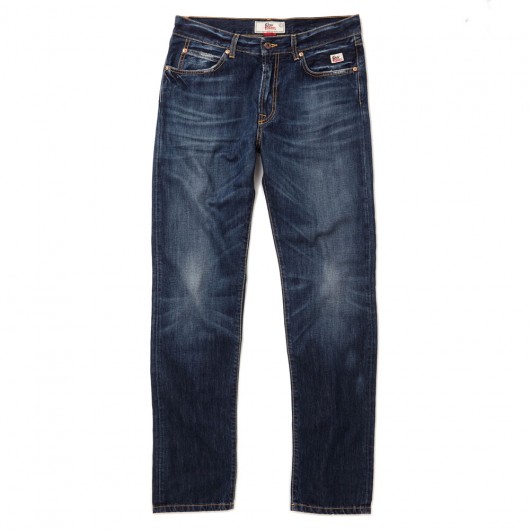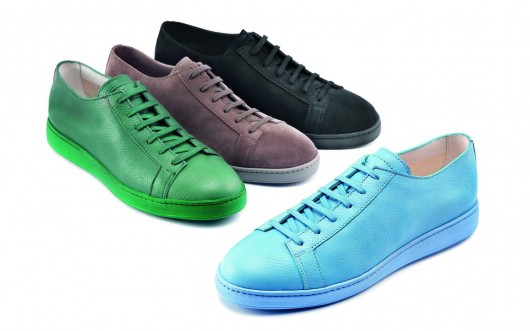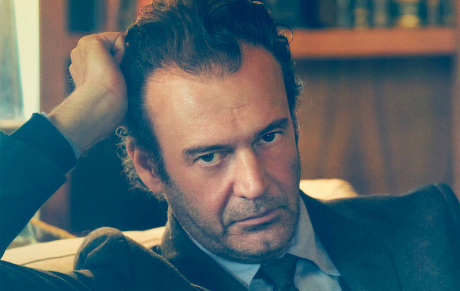MODA ECOLOGICA
Una moda etica deve necessariamente imparare a convivere con le necessità del pianeta: non inquinare nei processi produttivi e attraverso i trasporti delle materie prime (per quanto possibile senza cadere nell’autarchia), rispettare i lavoratori e il diritto d’autore, non danneggiare il consumatore.
E non sono poche le aziende di grandi come di medie dimensioni che da qualche tempo stanno cercando di muoversi in questa direzione che, va detto, è più consona a una dimensione artigiana che ad una grande fabbrica.
Un modello s/s 2015 di Eco Jeans Roy Roger’s
Tuttavia ci sono esempi di produzioni virtuose e di qualità come altri di dimensioni di massa. Così la Roy Roger’s riesce a proporre attraverso «The Eco Jeans Project» jeans maschili numerati, che vengono trattati con un lavaggio senza additivi chimici e con un ridotto consumo di acqua, oltre ad essere invecchiati attraverso trattamenti a impatto zero, come gli spruzzi a ghiaccio o gli interventi speciali laser. Una prassi che, qualora venisse estesa a tutti i jeans che si producono attualmente al mondo, potrebbe davvero fare la differenza in senso ecologico.
Alcune delle sneakers Santoni a km0
Cambiando settore notiamo anche nell’azienda calzaturiera Santoni una forte attenzione all’ambiente, che riguarda tutti i prodotti. Il cuoio è conciato con estratti vegetali e colorato manualmente con un processo lento e graduale. Chiaramente tutto questo costa, ma secondo il principio di comprare non a casaccio ma seguendo la norma del «value for money» abbiamo un oggetto fabbricato in maniera non invasiva che evita i danni delle tinture al piombo all’acquirente. Da poco la casa produce anche sneakers a kilometro 0. Per chi ama la moda ecologica. Luisa Ciuni
Ecological fashion. An ethical fashion must learn to coexist with the planet’s needs: don’t pollute during the productive process and the transport of raw materials, respect the workers and the copyright, don’t damage the consumer. There are many big/medium companies that are trying to move towards this direction that, it must be said, is more suitable for an artisan business than for a big factory. However, there are examples of virtuous and high-quality manufacturings. Roy Roger’s, through the “Eco Jeans Project”, proposes numbered jeans, washed without chemical additives and with a reduced water consumption, and weathered with zero-impact treatments, like ice-spray or laser. A procedure that, if extended to the global jeans production, could really make the difference. Santoni has a great care for the environment too. Leather is tanned with vegetable extracts and hand-painted with a slow and gradual process. Clearly this requires high costs, but following the principle of “value for money” we own a garment produced in a non-invasive way that protects the customer from the damages due to the lead dyes. The brand has just launched a collection of km0 sneakers. For the lovers of ecological fashion. Luisa Ciuni







